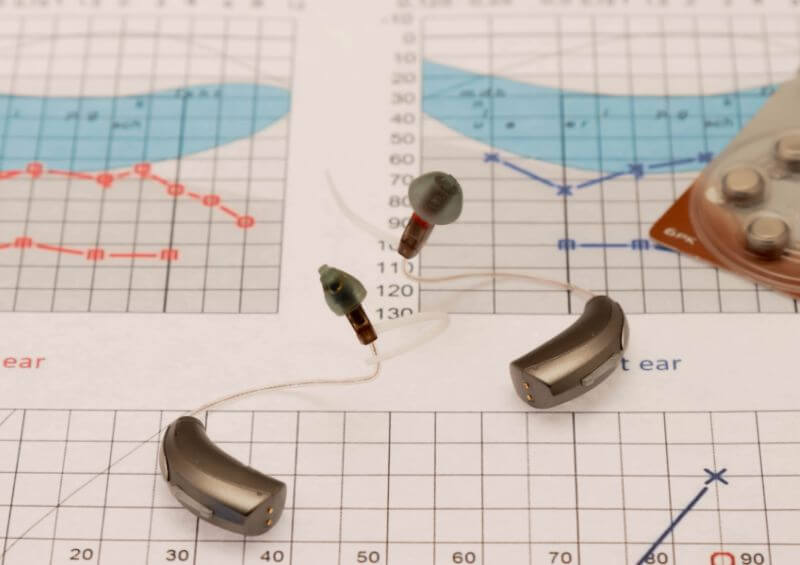Your ears play a vital role in providing your brain with information that’s essential to life. Our ears help us communicate with friends and family, helping us build relationships and form deep connections. In many older individuals, hearing loss can lead to social isolation and even dementia.
Sound also provides us with spatial awareness and the ability to hear slight changes that can alert us to potential dangers.
To hear these sounds, our ears are equipped with microscopic hair cells. But over time, the hair cells in our inner ear can be damaged. Permanent damage can come from exposure to loud noises, ototoxic (toxic for the ear) medications, or significant trauma.
Protecting your hearing is critical to protecting your mind and body. Here are 5 tips to help protect your hearing for years to come:
1. Recognize when you’re exposed to noises that are too loud. Anything over 85 decibels for an extended period can cause permanent damage.
This can include:
- Concerts
- Car radios
- Personal earbuds
- Fireworks
- Lawn equipment
- Heavy equipment like chainsaws or jackhammers
- A shooting range or active firearms
- Jets
- Motorcycles
- Sporting events
You can recognize if a noise is too loud if you have to shout to be heard, or if your ears hurt while listening. You will also experience ringing in your ears when the noise is gone. If you are unsure whether a noise is too loud, download a sound meter app on your phone, which can give you a quick read on the surrounding noise. Remember—anything 85 decibels or over can lead to permanent hearing damage.
2. Ask your doctor about your medication’s side effects and if it causes hearing loss.
Many medications are ototoxins and can damage your hearing cells. While these effects might be mitigated by stopping the medication, they’re most likely irreversible. It may also not be possible to switch medications. Talk to your doctor to see if there are ways to protect your hearing, or work with an audiologist to manage your hearing loss symptoms. Some ototoxic medication types include:
- Antibiotics
- Loop diuretics
- Opioids
- OTC pain relievers
- Cancer treatment drugs
Your occupation may also put you at risk for exposure to ototoxic chemicals. Always follow OSHA procedures to ensure you’re protected against harmful chemicals.
3. Use hearing protection when possible.
It’s not always easy, convenient, or, let’s face it, fashionable to wear hearing protection—especially when you’re out in public. But hearing protection comes in all shapes, sizes, and colors, making it easy to protect your hearing at every opportunity. Some common ear protection types include earmuffs and earplugs, but the squishy orange foam earplugs you’re thinking of aren’t the only option. Here are just a couple of the different hearing protection options available for your favorite activities:
- Concert ear plugs that reduce noise while keeping sound clear
- Bluetooth earmuffs let you listen to music and protect your ears while doing lawn work or operating heavy equipment
- Custom molded earplugs fit to your ear shape and are great for musicians
4. Opt for noise-canceling listening devices.
Many of us put our hearing at risk every day without realizing it by trying to block background noise. When we listen to music on earbuds or headphones that aren’t noise canceling, we may increase the volume to unsafe levels to compensate. Opt for devices with built-in noise-canceling features so you can listen at a safe volume.
5. Reevaluate your lifestyle and habits.
Studies show that smokers have a significantly higher risk of developing hearing loss than non-smokers. Nicotine from cigarettes constricts blood flow and lowers oxygen levels in the blood, damaging the delicate cells in the inner ear.
The threat of hearing loss can be intimidating, but there are ways to mitigate the risks if you’re prepared. Follow the 5 tips above, and you can protect your hearing for years to come.
If you are concerned you or a loved one may already have hearing loss, Dr. Amanda Kluzynski of the MedRx Hearing Center can help you find the best treatment option. Call us at (727)584-9696 to schedule a free hearing screening and discover more ways to protect your hearing.

